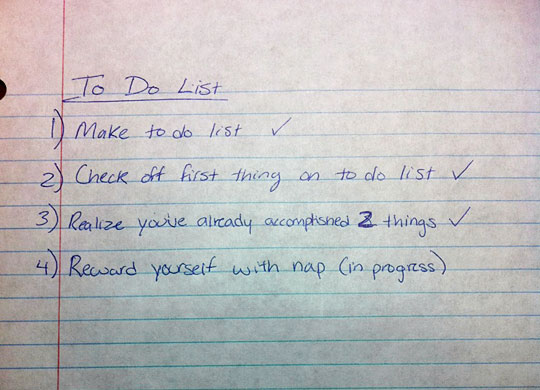Third in our series of blogs featuring Kelly McMonigal’s The Willpower Instinct.
I have been so good on my diet, and those brownies look scrumptious. I deserve a little treat…
We’ve made a lot of progress this month on our budget. I’m so pleased. Oh, I see they’re having a sale on lawn furniture. Why don’t we take a look and see if we can pick up a bargain? We deserve to treat ourselves a little…
The slippery slope. Also known as moral licensing. This is when an excess of virtue leads to an uprising of vice.
Outsize examples include Eliot Spitzer, John Edwards, and Tiger Woods. All of these individuals, one could argue, were under a lot of pressure, involving punishing professional endeavors. They also were required to control their public images on a continuous basis. An excess of virtue, one might say.
So what happened? A collapse of self control? Low blood sugar? Not enough sleep? Maybe, but more likely it was something involving a tricky feat of fuzzy logic that lets us off the hook, and through which people with high moral credentials can justify serious moral lapses. Cognitive dissonance at its best.
Exercising willpower on an ongoing basis is a struggle between competing interests, though we often characterize it as a battle between virtue and vice. We imbue what is just plain difficult with a moral overtone. Eating a salad becomes “good” and having a chocolate bar “bad”.
This is a mistake. Humans (not just teenagers) have an innate bias against doing what we are told. Apparently moral judgments are not nearly as motivating as our culture would have us believe. We are actually far more motivated toward getting what we want and avoiding what we don’t want, and then using fuzzy reasoning to justify it.
Another popular mental ploy is borrowing against future virtuous behavior to justify current lapses. Just plan to do the thing tomorrow, and lounging today is justified. A brownie today is easily excused on the basis of thin soup and a brisk walk tomorrow.
Or how about “Those shoes were such a bargain I could have bought five pairs, but only bought one.” In that instance, we are justifying ourselves on the basis of what we could have done, but didn’t. I can feel my halo pinching now.
How many of us feel so good about preparing the To Do list that we then lack the motivation to actually DO any of it? Well, at least I’ve made a start, we say smugly to ourselves. The actual work can start tomorrow, when I’m rested.
By these lines of reasoning, we can reward ourselves for anything!
What to do, then? There is lots of evidence to show that frequent check-ins help us stay on track. How, then, do we avoid being tricked into backsliding while still keeping an eye on our progress?
It’s quite simple, fortunately. By using an assessment of our progress to check in with our commitment to our goal. Then, by assessing whether the proposed action takes us towards our goal, or towards something else.
Remember the Why. The I Want. This shift in mindset completely changes our approach to self-indulgence.
What do I really want ?? I Want to be slim and healthy. Does eating a double burger with fries and a shake move me toward that want? Probably not. Hmmm. Maybe pick up a chicken sandwich and go for a walk with a friend, instead. That moves us towards our goal, and provides a treat of a different kind.
Humans are story-making machines, with a fine capacity for morphing reality to support what they want. Let’s use that to our advantage by choosing the “I Want” that serves our best long-term interest.

